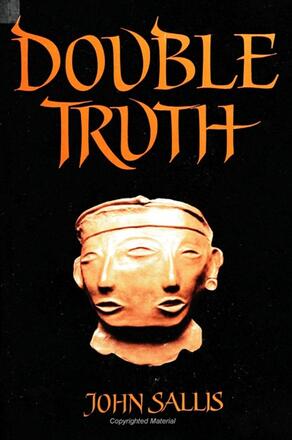
Double Truth
Alternative formats available from:
Description
This is an anthology of deconstructive writings on the doubly difficult theme of truth by the foremost American philosopher of postmodernity.
John Sallis is W. Alton Jones Professor of Philosophy at Vanderbilt University.
Reviews
"If any stranger needed to have it explained why John Sallis is such a major force in continental philosophy, I would invite him or her to turn to this book. Sallis takes his readers by the hand, and, with great delicacy, introduces them to hitherto unseen subtleties at the very heart of the works of Hegel, Nietzsche, Husserl, Heidegger, and Derrida. " — Robert Bernasconi, the University of Memphis
"Sallis has a philosophical-historical depth no one else in contemporary phenomenology can match, and the unity of this new book is impressive. Indeed, there is something particularly tenacious about the way Sallis holds to this most difficult of philosophical themes—truth. If truth is redoubtable, doubly difficult, so much so that postmodernity would prefer not to utter the word, Sallis shows what a practised hand and skillful eye can do. " — David Farrell Krell, DePaul University
"To my English ears, Sallis is perhaps the first truly American voice in Continental philosophy. This collection shows a unity of philosophical endeavour and reads as a thematically unified series of pieces all having common threads—doubling, truth, the earth, imagination, mimesis, and wonder. Each piece is tightly organized around a relatively small group of philosophers—Heidegger, Derrida, Husserl, Nietzsche, and Hegel. " — Simon Critchley, University of Essex, England